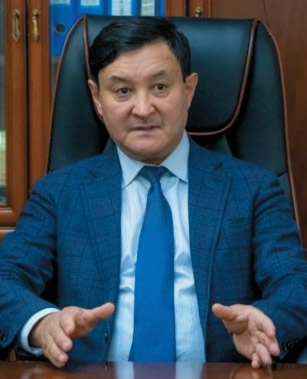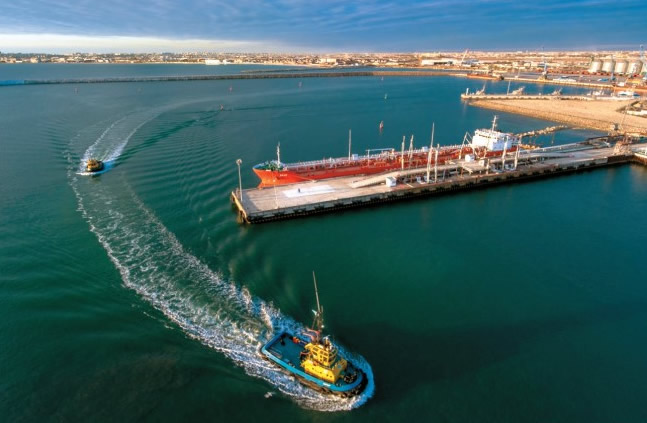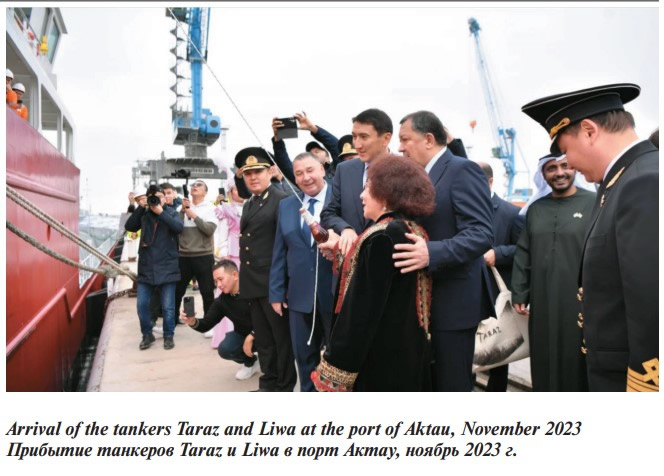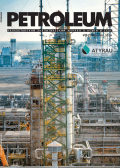Atyrau Oil & Gas
KazMunayGas Expands Its Fleet Plans Include Maritime Oil Services and Shipbuilding

At the beginning of 2023, the national company KazMunayGas and the United Arab Emirates port and logistics operator, Abu Dhabi Ports Group, signed a Strategic Partnership Agreement.
Erbolat Mendybayev, Director of the Transportation and Logistics Department at KMG, shared insights into the development of the cooperation between the two national operators, oil transportation in the Caspian and open seas, plans for shipbuilding in Kazakhstan, and participation in the transport corridor from China to Europe.
- Last year was successful for KazMunayGas's transportation division, with significant projects completed swiftly. One of these is the collaboration with Abu Dhabi Ports Group. Could you tell us about the main directions of this collaboration?
- Over 2022-2023, the transportation division of KMG did extensive work in cooperation with Abu Dhabi Ports Group. As a result, in January 2023, KMG and ADP signed a Strategic Partnership Agreement in marine and coastal cargo transportation, development, and investment in the tanker and trade fleet in the Caspian region. To implement this agreement, in February 2023, at the platform of the Astana International Financial Centre (AIFC), we established a joint venture, Caspian Integrated Maritime Solutions Ltd (CIMS).
Our cooperation includes four promising directions. The first is the development of the tanker and trade fleet for operations in the Caspian Sea and open seas (including the acquisition/construction of an oil trade fleet, ferries, container ships, and dry cargo vessels). Secondly, the development of a fleet to support and provide service operations for offshore projects in the Caspian Sea, such as Kashagan, Kalamkas-Sea - Khazar, and others. Third, coastal infrastructure development, including shipbuilding and port infrastructure facilities. The fourth direction is the development of a marine specialist training program in the Republic of Kazakhstan.
Together with our partners, we are set to make final investment decisions for each direction of cooperation. Currently, KMG and ADP are considering several projects. These include the construction of tankers with a deadweight of 12 thous. tons, building ferries, and acquiring supply vessels and OSRVs (Oil Spill Response Vessels) for KMG's marine projects in the Kazakh sector of the Caspian Sea. Also under consideration is the acquisition of dry cargo ships and a product carrier to organize transportation in the Black Sea of oil products produced by KazMunayGas's refinery in Romania (KMG International).

- How will this affect the development of alternative oil transportation routes?
- To fulfill the mandate of the Government of the Republic of Kazakhstan on the development of alternative oil transportation routes, in 2022, KMG and the Azerbaijani company SOCAR signed an Agreement on the transit of Kazakhstani oil via the Aktau - Baku - Ceyhan route with an annual volume of 1.5 mln tons. In March 2023, we began transportation. At present, transportation is carried out by existing tankers owned by KMG's subsidiary, Kazmortransflot (KMTF), through the Aktau port to Baku and further through Azerbaijan's pipeline system Baku - Tbilisi - Ceyhan port.
To increase the fleet for this route, in June 2023, the JV CIMS acquired two new tankers with a deadweight of 8 thousand tons, which were put into operation in December. Currently, the two tankers, named Taraz and Liwa, operate on the Aktau-Makhachkala route. After the installation of inert gas systems (IGS), they will operate on the Aktau-Baku route. Thus, the development of alternative routes leads to the development of our fleet.
Alongside the increase of the fleet in the Caspian region, we have created a joint KMTF/ADP tanker pool in the open seas, namely in the Black and Mediterranean Seas. It consists of four Aframax tankers (two of which belong to KMTF and the other two to ADP). Currently, KMG is negotiating with Chevron and Tengizchevroil for a long-term contract for oil transportation in the open seas (from the ports of Novorossiysk and Ceyhan). Expanding the pool with one or two more Aframax tankers will be explored if such agreements are reached.
 Arrival of the tankers Taraz and Liwa at the port of Aktau, November 2023
Arrival of the tankers Taraz and Liwa at the port of Aktau, November 2023- Whose oil does the existing joint KMTF/ADP tanker pool currently transport?
- For now, it's only our oil, including some volumes for KMG's share in Tengiz and resources from our subsidiaries Ozenmunaigas and Embamunaigas. The tankers receive this oil at the port of Novorossiysk and deliver it there through the Caspian Pipeline Consortium (CPC) and Atyrau-Samara pipeline systems. As I mentioned, the oil is loaded onto tankers in Novorossiysk and then sent to our refinery in Romania.



